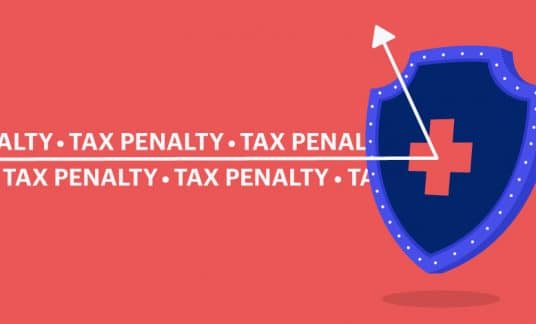You’ve started a new business and you’re focused on getting new customers and keeping expenses down. You’re willing to spend money on the business, just not spend on anything that doesn’t add to the business.
At this point, you’re asking yourself: Why do I need bookkeeping? It seems like an unnecessary expense, Besides, you probably think you can do it yourself. It shouldn’t be that hard, right?
But the business has grown, and you’ve hired a few employees. You’re spending more time doing the books, but you’re still asking yourself: Why should I hire a bookkeeper?
Here are 9 signs that you may need to hire a bookkeeper (and why a bookkeeper would help you run your business better).
1. Bookkeeping Is Taking Up Too Much of Your Time.
A main reason to hire a bookkeeper is because it can take too much of the owner’s time.
If you run a sole proprietorship and only have 10 to 15 transactions per month, you probably don’t need a bookkeeper. But as your business grows and the activity increases, you’ll find yourself spending more time posting entries. Doing the books is taking your time away from productive business activities such as looking for new customers and managing your employees.
Your time as an owner is too valuable and would be better spent seeking new business or building relationships with existing clients.
When your transactions add up 40 or 50 or more in a month, it’s probably time to hire a bookkeeper.
2. Bookkeeping Feels Like a Chore
You don’t want to be a bookkeeper, but you’re doing it anyway. Unfortunately, you aren’t entirely sure you’re doing it right. You’re making the entries into your bookkeeping system, but you aren’t comfortable that they’re all in the right place. You’re feeling overworked and tired. Doing the books is a chore and, frankly, you hate doing it.
Bookkeepers have the experience and knowledge to enter all the debits and credits in the right accounts, and they most likely can do it much more quickly than the owner. With a bookkeeper, you can rest assured your trial balance will balance and the entries and your revenues and expenses account will be correct.

3. Your Books Are Never Up to Date
Managing a business is about having a plan to build the business and make a profit. The next step is to monitor your progress along the way and make adjustments to stay on track to reach your goal.
To do this, you need regular monthly and quarterly financial statements. If your books aren’t up to date, you don’t have this information, and you’re missing a vital ingredient needed to have a successful business.
You don’t have monthly or quarterly financial statements to analyze, make decisions and control the direction of your business. Financial statements are like the gauges on the dashboard of your car, except they give you information about the financial health and performance of your business.
Unless you’re tracking your revenues and expenses, you don’t know how they compare to your budget. If you don’t know where the problem is, you don’t know where to make the correction.
4. Your Cash Flow Is Unpredictable.
You’re working hard, but you never seem to have enough cash and can’t figure out why. In the early stages of a startup, cash flow is even more important than making a profit.
A cash-flow statement is an essential document during the early stages of a company’s growth. Business owners should have cash-flow statements prepared on a monthly basis and, possibly, even on a weekly basis. You have to know how much money you have in the bank at the beginning of the month and how much you expect to have at the end of the month.
If you see that you’re going to have a cash-flow shortage, you need to know in advance. This will give you time to either apply to a lender for funds or solicit additional capital from investors to avoid the cash deficit.
A bookkeeper can make sure all of your revenues and expenses are accurately posted and use this information to prepare cash flow statements. you must know where your money is coming from and where it’s going.
5. Sales Have Increased but Profits Haven’t
The business is growing and sales are coming in, but it doesn’t seem like you’re making a profit. Where is the money going? If your bookkeeping is behind and not every transaction is posted, you won’t be able to find where the money went. A business owner must know the volume of sales needed to break even and cover all fixed costs and what profits can be expected at higher sales volumes.
A bookkeeper with a good accounting software program can give you this information, like monthly profit-and-loss statements. You can use these statements to find out if your expenses are in line with your budgets.
For example, did you budget to spend $20,000 a month for advertising to find out that you’re really spending $25,000 a month? Now you know what the problem is, and you can reduce advertising expenses to get back in budget.
This is the type of information that a bookkeeper can give you that will help you to stay on track to running a profitable business.
6. You Aren’t Prepared for Tax Time
Are you having to prepare and send too many documents and emails to your accountant at tax time? Does your accountant have too many questions? This is a sure sign that your bookkeeping efforts during the year are inadequate.
A bookkeeper will have all of your accounts up to date with entries posted in the correct places. At tax time, all you need to do is to make copies of your accounting ledgers and send them to your accountant. Since all transactions will have been posted, your accountant will have fewer questions and will charge you less to prepare your tax returns.
7. You’re Missing Tax Write-Offs.
You’re running a business and don’t have time to read the latest releases from the Internal Revenue Service (IRS). Besides, reading IRS bulletins doesn’t get you any new customers or help you with a marketing plan. As a result, you could be missing tax deductions that you should be taking but didn’t even know they existed. For example, do you know when to take a Section 179 tax deduction?
Even though bookkeepers aren’t accountants, they are still aware of tax laws and know about recent changes in tax regulations. With their knowledge, bookkeepers can make you aware of expenses you need to track to take deductions on your tax returns.

8. You’re Underpaying Your Quarterly Estimated Taxes
If you’re still doing the books, and they aren’t up to date, how do you know how much to pay for your quarterly estimated taxes? The IRS has stiff penalties for underpayment and late payment of quarterly estimated taxes. It doesn’t make any sense to pay unnecessary penalties and interest charges for late payments to the IRS because of poor bookkeeping.
A bookkeeper who keeps your records current and alerts you to payment dates for your quarterly taxes will save you money. The other side is that you certainly don’t want to overpay the IRS and not have the use of funds that could be better invested in your business. The IRS does not pay you any interest for excess payments.
9. Are You Using an Accountant or a Bookkeeper?
If you’re hiring an accountant instead of a bookkeeper, you may want to rethink that decision. They aren’t the same thing.
Bookkeepers record financial transactions. Accountants make sure the data is correct and interpret the data to tell you what it means. They help you prepare profit plans, make cash-flow projections, create pro forma balance sheets and offer tax advice.
For this professional advice, accountants charge a median wage of about $34 per hour, according to the Bureau of Labor Statistics. However, partners in medium to large accounting firms will charge considerably more.
Bookkeepers charge less. According to PayScale, bookkeepers charge an average slightly less than $18 per hour, about one-half of an accountant’s fee.
So, hiring an accountant for small business bookkeeping is unnecessary for the day-to-day posting of transactions. You would use your accountant more on an annual basis to review your financial statements and get professional advice.
Keeping Your Books in Order
If you are experiencing any of these signs, it’s time to hire a bookkeeper, at least on a part-time basis. Your time as a business owner is better used to run the business. The idea is to leverage your talents for the greatest return.
For example, suppose you’re a plumber, and you decide to start your own business. At first, you may go out on plumbing jobs yourself and do the actual work. But to expand the business, you want to hire other plumbers to do the work, and you manage their activities.
It’s the same with bookkeeping: You can do the books yourself at first, but soon you will want to hire someone else to do it for you.










